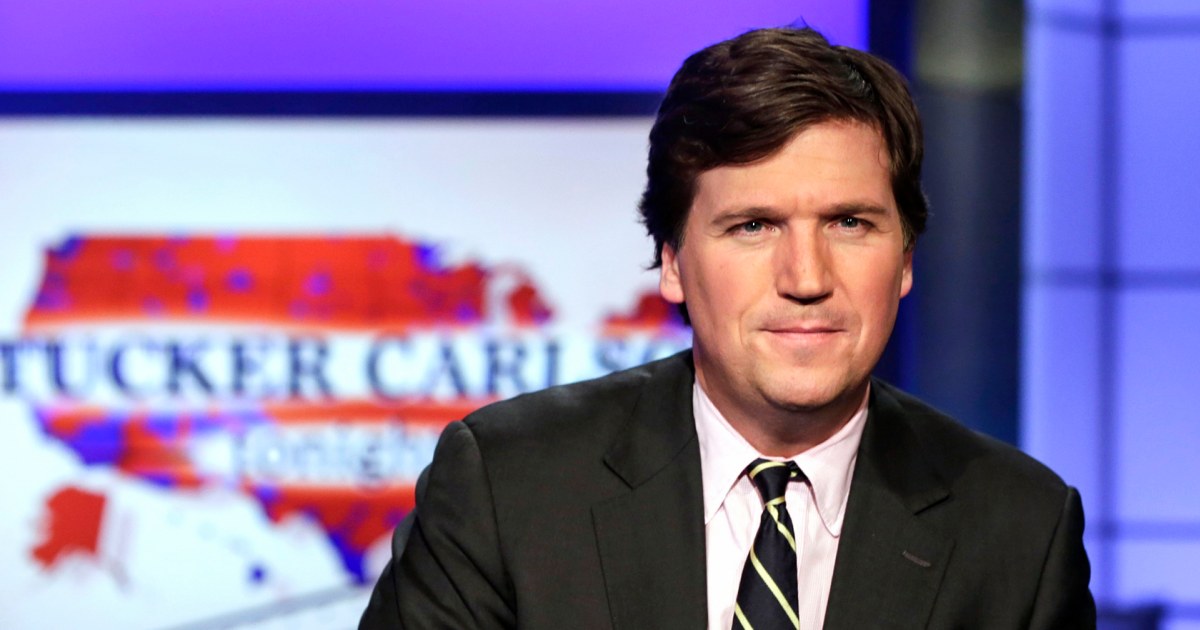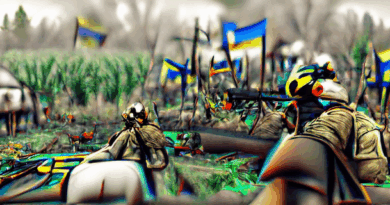Tucker Carlson offered jobs on Russian state TV

If Tucker Carlson is looking for work, the Kremlin could have the answer.
Just hours after Fox News unexpectedly announced the host’s departure, Carlson was offered work by Russian state media networks that have fiercely supported the invasion of Ukraine and echo much of his conspiratorial rhetoric.
The firebrand anchor is known for his critical views on Western support for Kyiv and has used his platform to question the huge amounts of financial and military aid the United States has sent to help repel Moscow’s year-old invasion.
RT, the broadcaster formerly known as Russia Today which is banned in dozens of countries including the entire European Union, said on its English-language Twitter account Monday: “Hey @TuckerCarlson, you can always question more with @RT_com.”
Vladimir Solovyov, the most prominent commentator on Russian state TV and a staunch pro-Kremlin propagandist, said Carlson was welcome to join his nightly panel discussion show — while suggesting he should consider a run for the White House.
“You have our admiration and support in any endeavor you choose for yourself next, be it running for President of the United States (which you should totally do, by the way) or making an independent media project,” he wrote in an email, according to a screengrab he shared on his Telegram channel.
“We’ll happily offer you a job if you wish to carry on as a presenter and host! You are always welcome in Russia and Moscow, we wish you the best of luck.”
Alongside the message on Telegram, Solovyov wrote in English: “Tucker, come join us. You don’t have to be afraid of taking the piss out of Biden here,” using a common British expression for mocking someone.
Speculation is swirling over where Carlson may find work next, whether it is on another right-leaning news network in the U.S. or elsewhere.
Carlson has strong links to Hungary and its far-right authoritarian and pro-Russian leader Viktor Orbán, whom he has interviewed. Carlson hosted his Fox News show from the capital, Budapest, for a week in 2021.
In 2022 Carlson made a documentary titled “Hungary vs. Soros: Fight for Civilization” — a reference to George Soros, the 92-year-old Hungarian-born Jewish businessman and philanthropist who has become a scapegoat for conservative conspiracy theorists in Europe and the U.S.
Carlson has consistently criticized Ukraine since the Feb. 2022 invasion, and has often argued that the U.S. is the real combatant in a proxy war against Russia, a point also made by Russian propagandists.
He has referred to Ukraine as an undemocratic “client state” of the U.S. State Department and has called the notion that it is fighting for its sovereignty “a lie.”
He has called President Volodymyr Zelenskyy — who is lauded across the world for the steadfast defense of his country — a “dictator” who has misused the more than $77 billion the U.S. has sent in aid so far, Carlson has argued.
“You can’t have an audit. Because if you do want an audit of where your money is going into the most corrupt country in Europe, you’re a tool of Putin!” Carlson said on his Fox News show in March.
Jon Roozenbeek, a postdoctoral researcher at the University of Cambridge and an expert in Russian propaganda and disinformation, said that the job offers may be an attempt to “troll” the West rather than genuine.
“He’s probably much more useful at any kind of American outlet that isn’t actively and openly sponsored by the Russian government,” he told NBC News.
Russia’s propaganda aims are not necessarily to persuade people to accept its position, Roozenbeek said, but to “sow doubt or uncertainty or to raise pulses and raise emotions” and make sure the Russian position is heard as much as possible in mainstream discussion.
“And so the bigger the voice that propagates these kinds of narratives, the better,” he said.
Western governments have steadily restricted Russian state TV channels since the conflict in Ukraine began in 2014 when Russian-backed paramilitary groups set up internationally unrecognized administrations in Luhansk and Donetsk, the same year Russia sparked outrage across the world by annexing Crimea.


